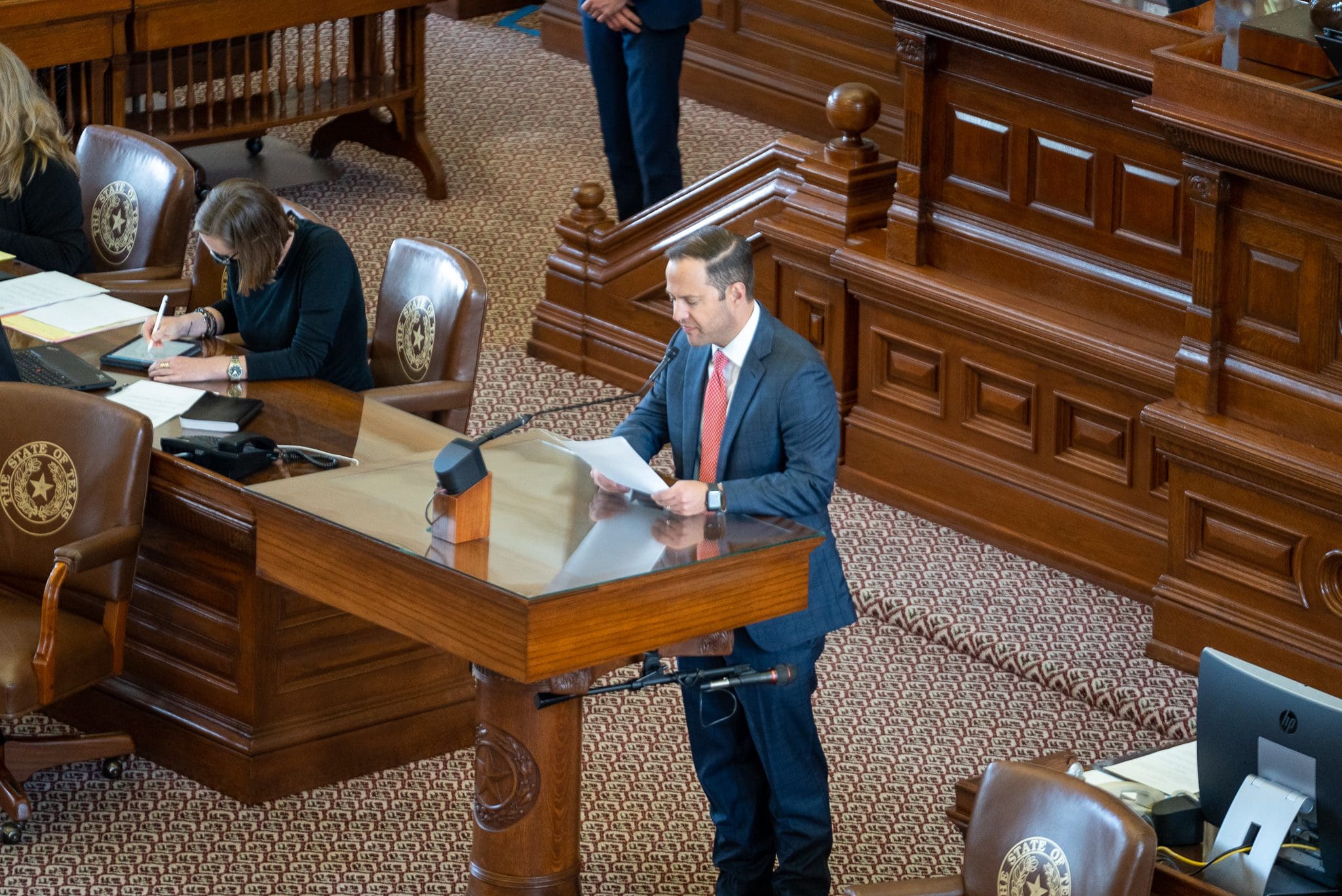Legislation that would roll back a “patchwork” of county and municipal ordinances in multiple areas of policy passed the Texas House this week.
According to its legislative analysis, House Bill 2127 by State Rep. Dustin Burrows (R–Lubbock)—referred to as the Texas Regulatory Consistency Act—“seeks to provide consistency and predictability by preempting local regulation of matters regulated by the state,” specifically those addressed in the Agriculture Code, Business & Commerce Code, Finance Code, Insurance Code, Labor Code, Natural Resources Code, Occupations Code, and Property Code.
The legislation effectively repeals any local ordinance that conflicts with state law and prohibits any attempt to enact or enforce such an ordinance. It also states that anyone adversely affected by a potential violation of this law can bring legal action against the city or county that committed the violation.
The bill passed Wednesday by a vote of 92-55, but the majority of the debate occurred the previous day.
Burrows explained that the bill would spur economic growth by providing “regulatory stability and certainty,” and he argued that “it actually gives local governments a hand by giving them a simple reason why they won’t, in fact, be bringing a vote to countless issues that activists have been harassing them to pass locally.” He pointed out that many businesses in Texas currently have to “navigate a Byzantine array of local regulations that twist and turn every time they cross a city limit sign.”
He also pointed out that “home rule cities … are a creation of the state and enshrined in the Texas Constitution,” suggesting the bill’s opponents are misguided for implying it would violate their autonomy. In 1912, voters amended the Texas Constitution to authorize cities of more than 5,000 residents to adopt their own charters, provided “no charter or any ordinance passed under said charter shall contain any provision inconsistent with the Constitution of the State, or of the general laws enacted by the Legislature of this State.”
Still, Burrows explained, the measure would not interfere with local governments’ authority to regulate a wide range of activities and business, including zoning, transportation, disorderly conduct, daycare centers, pawn brokers, massage parlors, and “a host of others.”
State Rep. Chris Turner (D–Grand Prairie), however, argued the bill would “spur an onslaught of frivolous lawsuits.” He also characterized the legislation as being “against the will of Texas voters,” “the very definition of big government,” and “an unconstitutional blanket transfer of power that will have far reaching implications, will harm the people that live in the cities and counties … and everyone we represent.”
Burrows responded that cities and counties can still enact ordinances regarding anything the state doesn’t regulate. He also pointed out that litigants who bring a suit against a local government believed to be in violation of the law would not be awarded any damages, only injunctive relief and the recovery of attorney fees.
“So, there’s really not an incentive for anybody to actually want to do this,” added Burrows.
The bill also requires an injured party to notify a city or county at least three months prior to suing them, offering the two sides an opportunity to resolve the dispute out of court.
“So, I think it’s actually a brilliant way to handle this,” Burrows explained, “because we’re not here all the time, we can’t continue to play whack-a-mole, so we’re going to allow the courts to actually continue to help us in regulating this.”
“It’s going to give citizens the ability and right to petition their court system to get redress of some of these ordinances, which are overreaching and difficult for them,” added Burrows.
Other objections to the measure include allegations that it would reduce workplace safety—particularly for construction workers—subject LGBTQ individuals to discrimination, and give payday and title loan operators free rein to prey on the poor.
Burrows argued that the federal Occupational Safety and Health Administration has promulgated recommendations for workplace safety that most employers adhere to, and he countered that state and federal anti-discrimination laws sufficiently protect Texans’ individual rights. He also explained that the bill preserves the ordinances regarding payday and title lenders enacted in 49 jurisdictions throughout the state.
State Rep. Ana-Maria Ramos (D–Richardson) accused Burrows of trying to advance a legislative priority of the conservative American Legislative Exchange Conference, which crafts model legislation for state legislators on various issues related to its policy agenda.
Burrows disputed that characterization, asserting, “This is a Dustin Burrows priority bill.”
“I hope they take my bill and make it a model for the entire country,” he added, pointing out that Forbes has published an article suggesting the legislation could become a model for other states.
Democrats offered dozens of unsuccessful amendments during an hours-long debate that saw several points of order. The bill now heads to the Senate with less than six weeks left in the legislative session.





